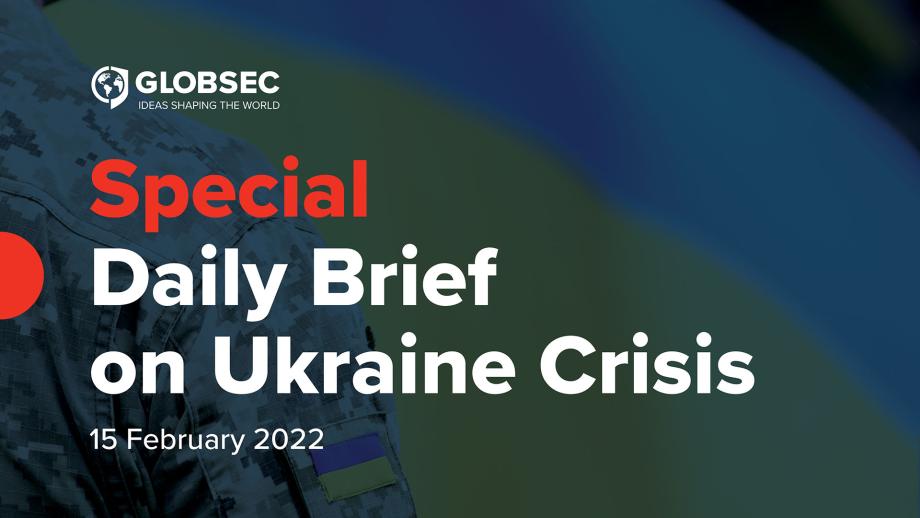Special Daily Brief on Ukraine Crisis: De-escalation?

Today’s reports from Ukraine are conflicting, with most suggesting that some Russian troops have started to pull out from the border, but some suggesting that there is no real movement on the ground yet.
Is Russia pulling back troops?
Today, Russia announced that some of the units, that have been moved to Ukraine’s border, would be withdrawn after completing recent drills, but stressed that other major exercises would continue. The Russian Defense Ministry said troops from its Southern and Western military districts had begun returning to their bases, though the announcement did not say precisely where those troops were permanently based, where they had been exercising, or how many of them were withdrawing.
Whilst Western politicians have welcomed the news with cautious optimism, many have stressed that they remain sceptical. Ukrainian sources emphasised that ‘they will believe the withdrawal when they see it’. NATO Secretary General Jens Stoltenberg said "We haven't seen any de-escalation so far" by Russia on the borders with Ukraine. But he adds, "signs" coming from Moscow about diplomatic efforts give "some reason for cautious optimism".
Why Russia may be pulling out?
Provided that the news of de-escalation is conformed, it would seem that Russia was persuaded to change its posture by the firmness of the Western response but also by possible concessions on the Ukrainian side. As Russia amassed its troops at the border, it demanded that Ukraine never be admitted to NATO and that the separatists’ regions of Luhansk and Donetsk be given full autonomy. Yesterday Ukraine’s ambassador to the UK admitted that Kiev could be prepared to ‘contemplate’ giving up on the goal of future membership to NATO.
At the same time, at a press conference during the German Chancellor’s visit to Kyiv, he focused on the Minsk agreements, saying that Zelensky agreed to present a plan to introduce “special status” for Donbas, occupied by Russia since 2014. Ukraine has previously denied granting special status to Donbas, saying that with the ongoing set of decentralisation reforms, all Ukrainian regions will have more powers to give local communities more economic and local capacity.
Luhansk and Donetsk
Following the Russian annexation of Crimea in 2014, Russian-backed rebels seized big areas of two key regions - Luhansk and Donetsk. Subsequently, the separatists declared those areas as independent.
Until now, Russia has not recognised them as independent. However, Russia's parliament has recently voted to appeal to President Vladimir Putin to recognise those two separatist-run areas as "sovereign and independent states".
If Putin were to do this, that would be the end of any kind of peace process with Ukraine. There are two accords known as the Minsk agreements from 2014 and 2015. They just haven't been implemented yet and one way out of the current crisis would be to make progress on the Minsk deal.
Under those accords the two rebel-run regions would remain part of Ukraine, but they'd keep a special status of autonomy. Russia and Ukraine have very different views on what that status means.
Russia has handed out some 720,000 passports to people living in the rebel regions so they're already close to Moscow. But recognising independence would be a dramatic decision ending any hope of reaching peace with Kyiv.
